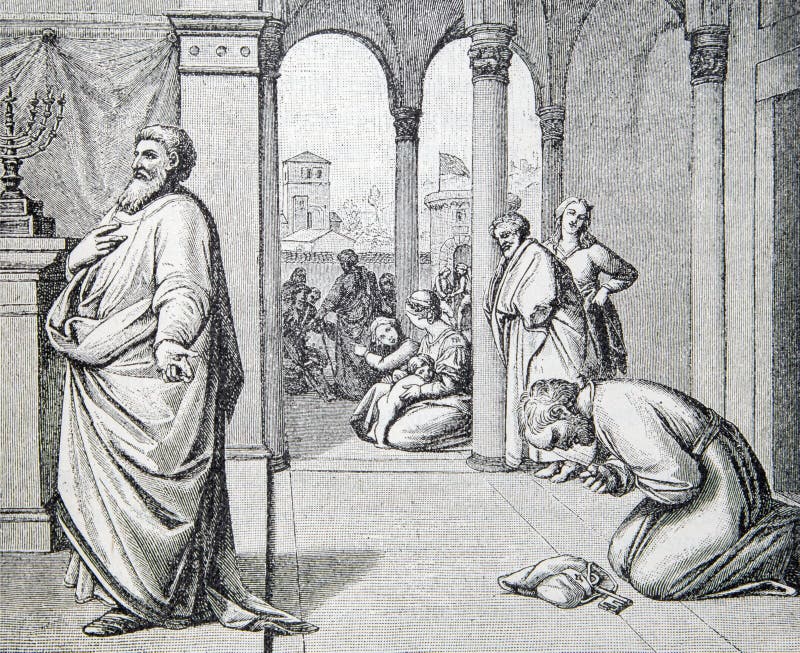Which one of the two in Jesus’ parable (Luke
18:9-14) reflects you more: a Pharisee, who boated of his righteous acts and thanked
God for keeping him righteous, or a tax collector, who cried to God for His
mercy? As we have entered in the latter halfway on our Lenten journey,
examining ourselves with this question is of critical importance to ensure that
we are on the right track.

What characterizes the Pharisee is
self-righteousness, which reflects his excessive pride to himself. In contrast,
the tax collector reflects penance and humble recognition of the need for mercy
from God. If we were all as righteous as what the Pharisee thought of himself,
then, why would we need to be on the Lenten journey? To feel superior to the
rest of repenting brothers and sisters, who seek God’s mercy on the journey?
A self-righteous attitude of the Pharisee is
sometimes observed even in a prayer meeting or faith-sharing meeting. At such a
meeting, we share our personal experiences of being touched by God, experiencing
His grace. We are to speak how God, especially in His mercy (chesed), has touched and how this
experience has been transforming us. However, once in a while, there is a
person simply describing good deeds he or she did in the name of God, as to be
acknowledged by the rest of the attendees of the meeting. Rather than saying
how God enabled him or her to do a good thing to others, this person simply
speaks of his or her accomplishment.
Perhaps, this person did not intend to boast of his
or her good deed to others. Nevertheless, it suggests that this person is blind
to his or her tendency toward self-righteousness and psychological need to be recognized
as superior. Such a need reflects his or
her inner insecurity, and it needs to be acknowledged by him or her. This
acknowledgement of the insecurity deep within, contributing to his or her
tendency to self-righteousness is, an indispensable step to be taken, while
Lenten journey is still taking on.
It is important to understand why Jesus spoke this
parable, and it is to teach a lesson to those who were too confident of their
own righteousness and therefore looked down on others (Luke 18:9). Through our
Lenten journey together, we come to realize that self-righteousness is a reflection
of pride, as well as, an indication of spiritual blindness, which is addressed
in the Gospel reading for the 4th Sunday of Lent (A) (John 9:1-41).
Not to mention, it is a major obstacle on our Lenten path.
As the repenting tax collector in the Gospel reading
was asking for, what we need is mercy of God, as we continue on with our Lenten
journey. We, in fact, journey on the path of God’s mercy during Lent. Mercy is
what we pray for through our Lenten prayers with contrite heart. The First Reading
(Hosea 6:1-6) reminds that the mercy of God is a healing and reviving medicine
(Hosea 6:1-2). It is as reviving as rains enable the earth to be vegetated (Hosea
6:3) so that it will not be barren. And, it is what we pray for with our
humility and penance. However, our pride is a major obstacle to receive the
medicine of mercy from God.
As we continue to move forward on this Lenten
journey, let us pray for God’s mercy, the very medicine we need, so that we can
be transformed and we can perform acts of mercy to others.
It is in God’s desire to give us chesed : mercy in His covenant loyalty
and steadfast love (Hosea 6:6; Matthew 9:13). It is also in His desire to be
merciful to one another as He is so (Luke 6:36). Let us be touched by God through His medicine
of mercy so that we can be transformed to become more merciful, eradicating all
the causes of our self-righteousness, such as pride.
Pride to ourselves
keeps us from God but humble recognition of our need for God’s mercy is a
stride into the closeness to God.
No comments:
Post a Comment